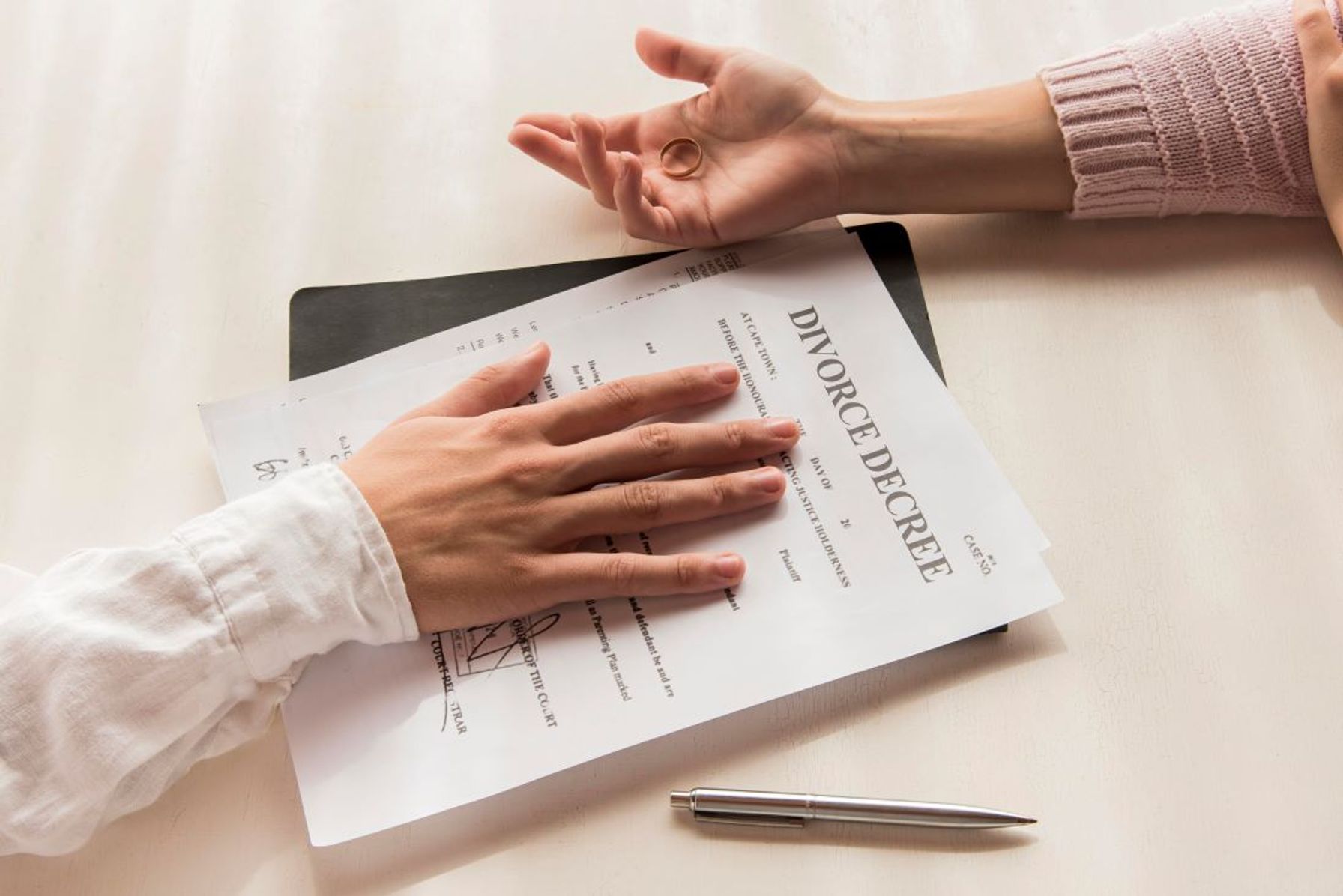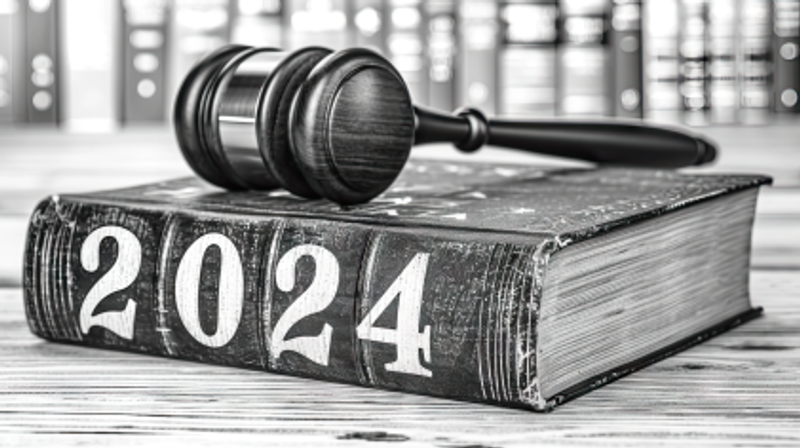Divorce is a complex process involving more than just ending a marriage. It includes legal complexities and important documents. It’s not just about ending a marriage; it also requires dealing with various legal steps and papers. One crucial document in divorce is the “divorce decree.”
What Is a Divorce Decree?
A divorce decree is referred to as a “judgment of divorce,” is a legally binding document issued by a court that marks the formal and final termination of a marriage. This document plays a crucial role in the legal and financial aspects of divorce as it outlines the terms and conditions under which the divorce is granted. These terms include key decisions regarding child custody, child support, spousal support , property division, and any other pertinent issues that may have arisen during the divorce proceedings.
Difference Between Divorce Decree and Divorce Certificate
It’s important to differentiate between a divorce decree and a divorce certificate, as these two documents serve distinct purposes:
Divorce Decree:
- Contains the detailed terms and conditions of the divorce.
- Specifies child custody and support arrangements, spousal support, property division, and other relevant matters.
- Provides a legal basis for enforcing the court’s decisions.
- Is the final and official document issued by the court after the divorce proceedings are concluded.
Divorce Certificate:
- Serves as a record of the fact that a divorce has occurred.
- Contains basic information such as the names of the divorced individuals, the date of divorce, and the court where the divorce was granted.
- Is often used for administrative and informational purposes, like changing one’s name, updating identification, or applying for government benefits.
- Does not include the detailed terms of the divorce, it’s more like a divorce “status” certificate.
While a divorce certificate confirms that a divorce has taken place, a divorce decree is the document that outlines the legal and financial specifics of the divorce, making it a much more comprehensive and legally binding document.
Reasons Why a Divorce Decree Is Required
Obtaining a divorce decree is essential for several important reasons:
Legal Requirement: The divorce decree is a legal requirement to formalize the end of a marriage. It provides an official record of the court’s decisions on issues like child custody, property division, financial support and it enforces these decisions.
Protection of Rights: The divorce decree protects the rights and responsibilities of both parties. It serves as a reference point for future legal actions or disputes and ensures that each party adheres to the court’s rulings.
Financial Matters: The divorce decree is crucial for financial matters, such as dividing assets and debts, determining alimony and establishing child support. Without it, these financial arrangements may not be enforceable.
Child Custody and Support: For divorcing couples with children, the divorce decree is vital for outlining child custody and support arrangements, visitation schedules, and decision-making responsibilities.
Updating Legal Documents: A divorce decree is often required to change one’s name back to a maiden name, update identification documents, and make adjustments to insurance policies, wills and beneficiary designations.
How to Get a Divorce Decree?
The process of obtaining a divorce decree typically involves several steps:
Finalize Divorce Proceedings: Ensure that all aspects of your divorce, including child custody, spousal support, property division, and any other issues, have been addressed and resolved through court hearings or mediation.
Draft the Decree: Either you, your spouse, or your respective attorneys will draft the divorce decree. It should accurately reflect the court’s decisions and be in compliance with the laws of your jurisdiction.
Court Approval: Once the decree is drafted, it must be submitted to the court for approval. The court will review the document to verify its accuracy and legality.
Court’s Decision: After the court reviews the decree, it will issue a judgment of divorce which finalizes the end of the marriage. This judgment is the official divorce decree.
Obtain Certified Copies: Request certified copies of the divorce decree from the court clerk’s office. These certified copies are important for various legal and administrative purposes.
Distribution of Copies: Make sure that both parties receive a copy of the divorce decree and keep extra copies for your records. You may also need to provide copies to relevant institutions, such as banks, insurance companies and government agencies.
What Does a Divorce Decree Look Like?
A divorce decree is a legal document that typically contains the following elements:
Identification Information: This section includes the full names of the parties involved in the divorce and their addresses
Marriage Details: It outlines the date of the marriage, the place where the marriage took place, and any other relevant information regarding the marriage.
Court Information: The name of the court that granted the divorce and the date of the judgment are included in this section.
Terms and Conditions: This is the most substantial part of the divorce decree as this section details the court’s decisions on matters such as child custody, child support, spousal support, property division.
Finality: The decree will often contain a statement declaring the marriage dissolved and the parties free to remarry.
Enforcement: There may be language indicating the court’s jurisdiction to enforce the decree, as well as instructions on how to seek modifications if needed in the future.
Signatures: The document is typically signed by the judge, and sometimes by both parties or their attorneys, acknowledging the court’s decision.
Significance of the Divorce Decree
The divorce decree is a critically important document for several reasons. Firstly, it possesses the legal authority required to enforce court decisions related to property division, financial support and child custody. Secondly, it offers clarity by specifying the rights and responsibilities of each party after the divorce reducing the potential for disputes and confusion. Thirdly, it functions as an official record of the divorce like name changes, updating identification, or accessing government benefits. Lastly, having a divorce decree in place brings peace of mind as it confirms the proper resolution of the legal aspects of the divorce.
Role of a Divorce Lawyer
The divorce process can be overwhelming, emotionally charged, and legally complex. Hiring a divorce lawyer can greatly ease the process of obtaining a divorce decree for several reasons. A divorce lawyer plays a vital role in the divorce process, particularly regarding the importance of the divorce decree. By offering legal expertise, they help in crafting a decree that upholds the significance of the document, ensuring its enforceability. Moreover, they can negotiate on behalf of their clients, minimizing disputes and maximizing clarity in the decree.
Also Read: https://divorcelawyer.in/blog/divorce/how-to-apply-for-divorce-in-india-2023-a-step-by-step-guide/




